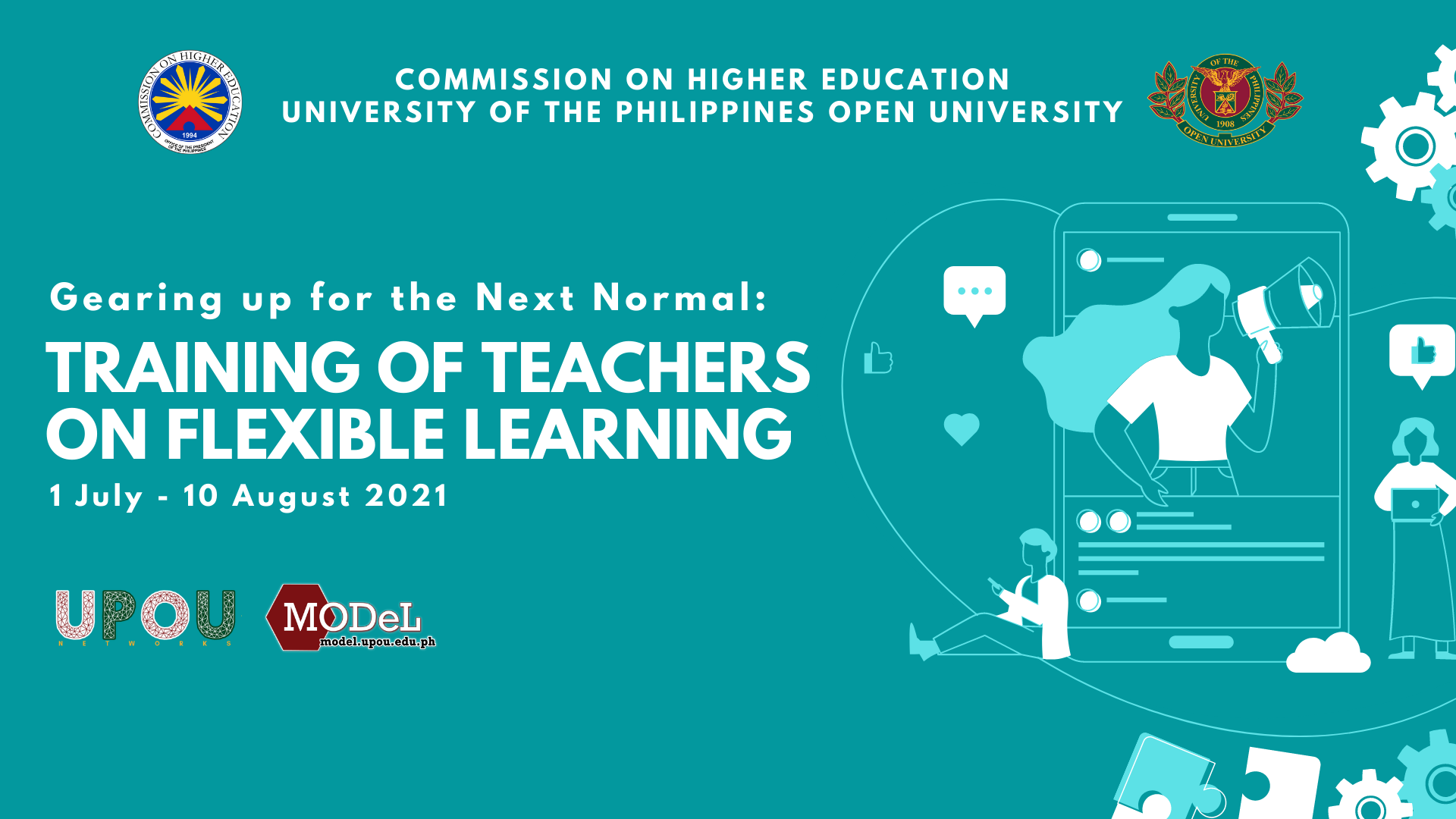The University of the Philippines Open University (UPOU), in collaboration with the Commission on Higher Education (CHED), trained over 1,000 teachers on flexible learning through the capability building program “Gearing up for the Next Normal: Training of Teachers on Flexible Learning.” The newly trained teachers were also equipped to develop their own Teacher-Training Program to be the lead trainers of the said topic in their respective institutions.
The training program was participated by 1,292 teachers representing 205 Higher Education Institutions (HEIs) from different regions in the country. Participants were trained by UPOU faculty members who are experts on the topics relevant to flexible learning such as Flexible Learning Pathways, Backward Design Process of Designing a Course, Module Writing, Assessment in Flexible Learning, Course Delivery, Technologies in Teaching and Learning, and Quality Assurance. These topics were delivered asynchronously through packaged online instructional materials and synchronously through participative synchronous sessions via Zoom and live-streamed on the UPOU Networks and Youtube Live.
The session recordings, along with the learning resources and activities, were uploaded on the training course site at UPOU Massive Open Distance eLearning (MODeL) platform. The UPOU MODeL served as the asynchronous session platform where participants collaboratively worked on learning activities with their co-participants and received feedback on their submissions from faculty experts and module tutors.
As future lead trainers, participants were also taught to design their own Training Program through a series of sessions on Training Curriculum Design, Open Educational Resources (OERs), eLeadership, eManagement, and the different emerging trends in education.
The training program on flexible learning was one of UPOU’s response to the need for upskilling programs to ensure equitable access to quality education during the COVID-19 pandemic. Project Lead and UPOU Chancellor, Dr. Melinda dela Peña Bandalaria, highlighted how flexible approaches promote open and equitable access to learning opportunities during her live session on Module 1: “Flexible Learning: An Overview.”
“Flexible learning, by itself, is not a mode of study. It is a value principle like diversity and equality which we always use when we talk of education in society. Flexible learning allows teachers and administrators to put together different modes of instruction that will suit the context of our learners…We need to think about what kind of flexibility we can introduce in our courses so that we can provide equitable access to learning opportunities.”
One of the participants, Dr. Ronald Go from Manila Central University, said that his participation in the training shifted his view on flexible learning.
“I was re-oriented on how flexible learning applies in remote learning. These experiences and realizations have certainly rekindled in me the value of flexibility, consideration, and empathy in delivering effective remote and online instruction.”
As part of the project, the recordings of the live sessions are available to the public on the UPOU Networks as OERs so that participants can integrate the videos into their training curriculum. The participants have presented their Teacher-Training Plans designed for their institution and some are already starting to implement their own training programs. UPOU continues its efforts to guide the participants in their rollout training programs so these future trainers could be the trainers of the future.
Written by Shaira Tanay
Edited by Joane V. Serrano and Anna Cañas-Llamas









